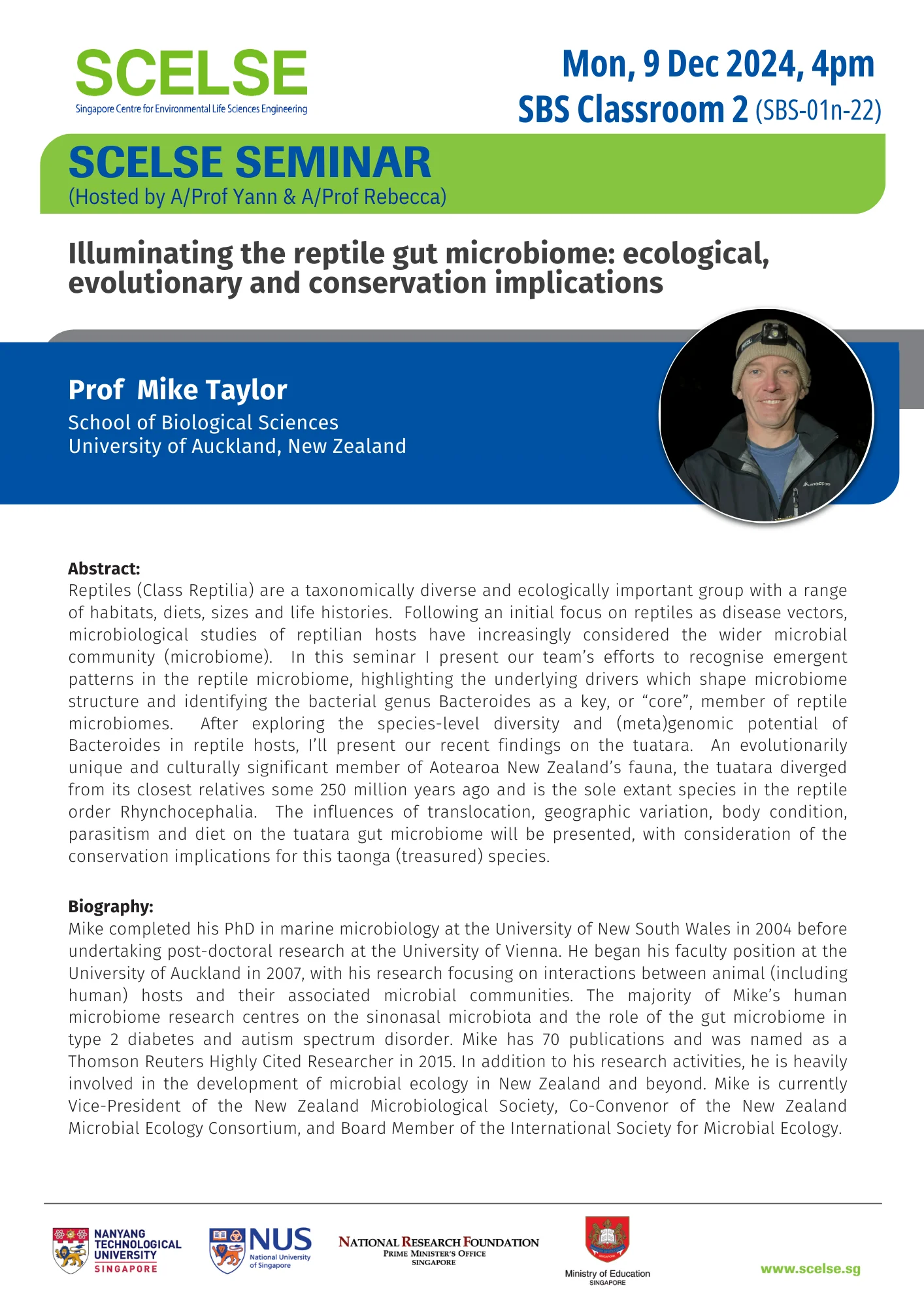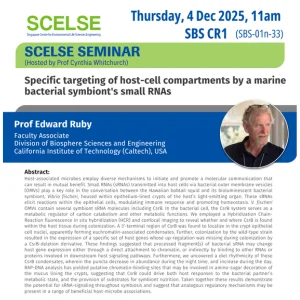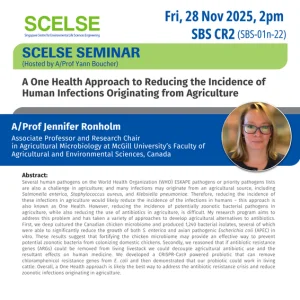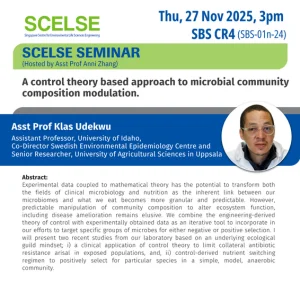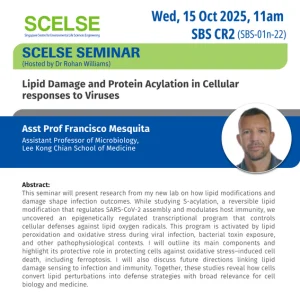Illuminating the reptile gut microbiome: ecological, evolutionary and conservation implications
Time: 4pm – 5pm
Venue: NTU School of Biological Sciences Classroom 2 (SBS-01N-22)
Reptiles (Class Reptilia) are a taxonomically diverse and ecologically important group with a range of habitats, diets, sizes and life histories. Following an initial focus on reptiles as disease vectors, microbiological studies of reptilian hosts have increasingly considered the wider microbial community (microbiome). In this seminar I present our team’s efforts to recognise emergent patterns in the reptile microbiome, highlighting the underlying drivers which shape microbiome structure and identifying the bacterial genus Bacteroides as a key, or “core”, member of reptile microbiomes. After exploring the species-level diversity and (meta)genomic potential of Bacteroides in reptile hosts, I’ll present our recent findings on the tuatara. An evolutionarily unique and culturally significant member of Aotearoa New Zealand’s fauna, the tuatara diverged from its closest relatives some 250 million years ago and is the sole extant species in the reptile order Rhynchocephalia. The influences of translocation, geographic variation, body condition, parasitism and diet on the tuatara gut microbiome will be presented, with consideration of the conservation implications for this taonga (treasured) species.
Speaker:
Prof Mike Taylor
School of Biological Sciences
University of Auckland, New Zealand
Biography:
Mike completed his PhD in marine microbiology at the University of New South Wales in 2004 before undertaking post-doctoral research at the University of Vienna. He began his faculty position at the University of Auckland in 2007, with his research focusing on interactions between animal including human) hosts and their associated microbial communities. The majority of Mike’s human microbiome research centres on the sinonasal microbiota and the role of the gut microbiome in type 2 diabetes and autism spectrum disorder. Mike has 70 publications and was named as a Thomson Reuters Highly Cited Researcher in 2015. In addition to his research activities, he is heavily involved in the development of microbial ecology in New Zealand and beyond. Mike is currently Vice-President of the New Zealand Microbiological Society, Co-Convenor of the New Zealand Microbial Ecology Consortium, and Board Member of the International Society for Microbial Ecology.
